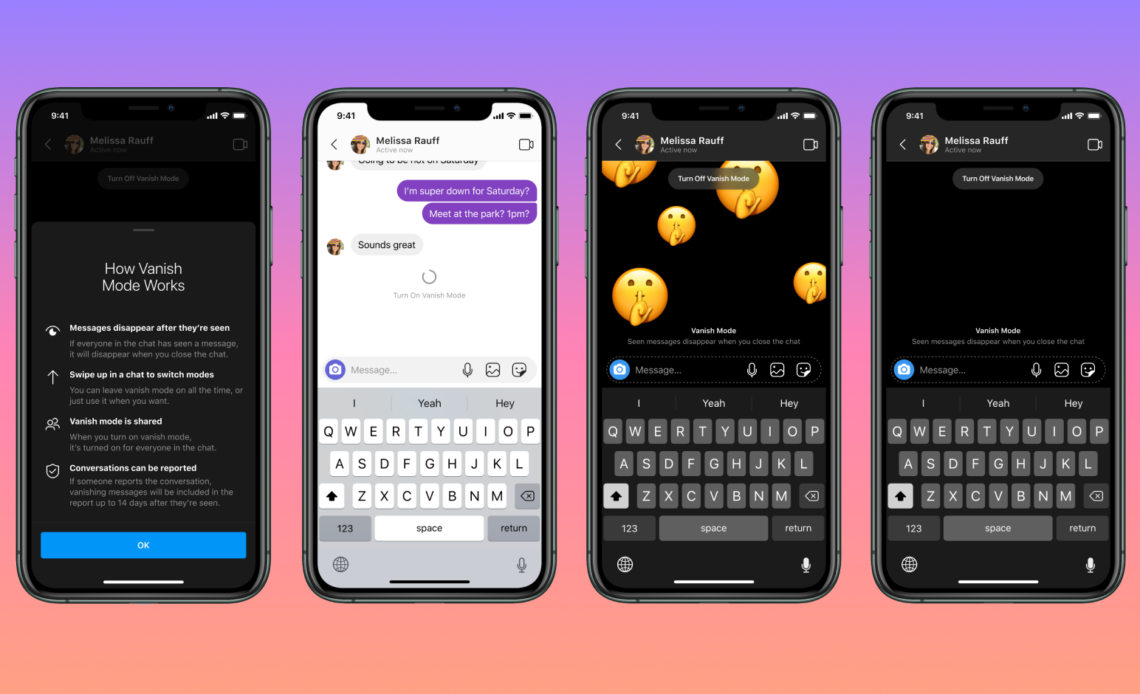
META CEO Mark Zuckerberg announced the main new features for Facebook Messenger, one which will significantly increase privacy on the platform: Notification when someone connects your message that disappears in secret conversations with end-to-end encryption.
“New updates for encrypted messenger chat end to end so you get a notification if someone takes a message screenshot that disappears,” Zuckerberg wrote on January 27, 2022. “We also add gifs, stickers, and reactions too.”
Facebook first introduced a message that disappeared in November 2020, in Messenger and Instagram. This step is part of a greater effort to provide additional protection throughout the company’s messaging platform, with WhatsApp receiving similar features just a few weeks earlier.
From the beginning, Messenger would notify the user when someone took the screen of the message screen that disappeared, making this latest announcement look excessive. However, there is one very important difference.
Facebook has tried to launch end-to-end encryption (E2EE) on the messaging platform. E2EE is a significant increase in server side encryption and is considered a standard of gold privacy and security. In terms of server side encryption, the service provider has a key that can be used to decrypt your data. As a result, you can never be truly sure who accesses your data and messages.
However, with E2EE, your data is encrypted in such a way that only you and people you communicate can read your message. Even providers, the services you use, can intercept and read your message. Needless to say, while E2EE offers unmatched security, it can be more difficult to add usual features in non-e2ee services.
That difference is what makes Zuckerberg’s latest announcement different. Facebook now provides screenshot notifications in E2EE chat, adding additional layers of privacy and security for the message. The addition of reactions, gifs and stickers with this chat, meanwhile, will make personal conversations a little more interesting. New features are taking refuge now.
